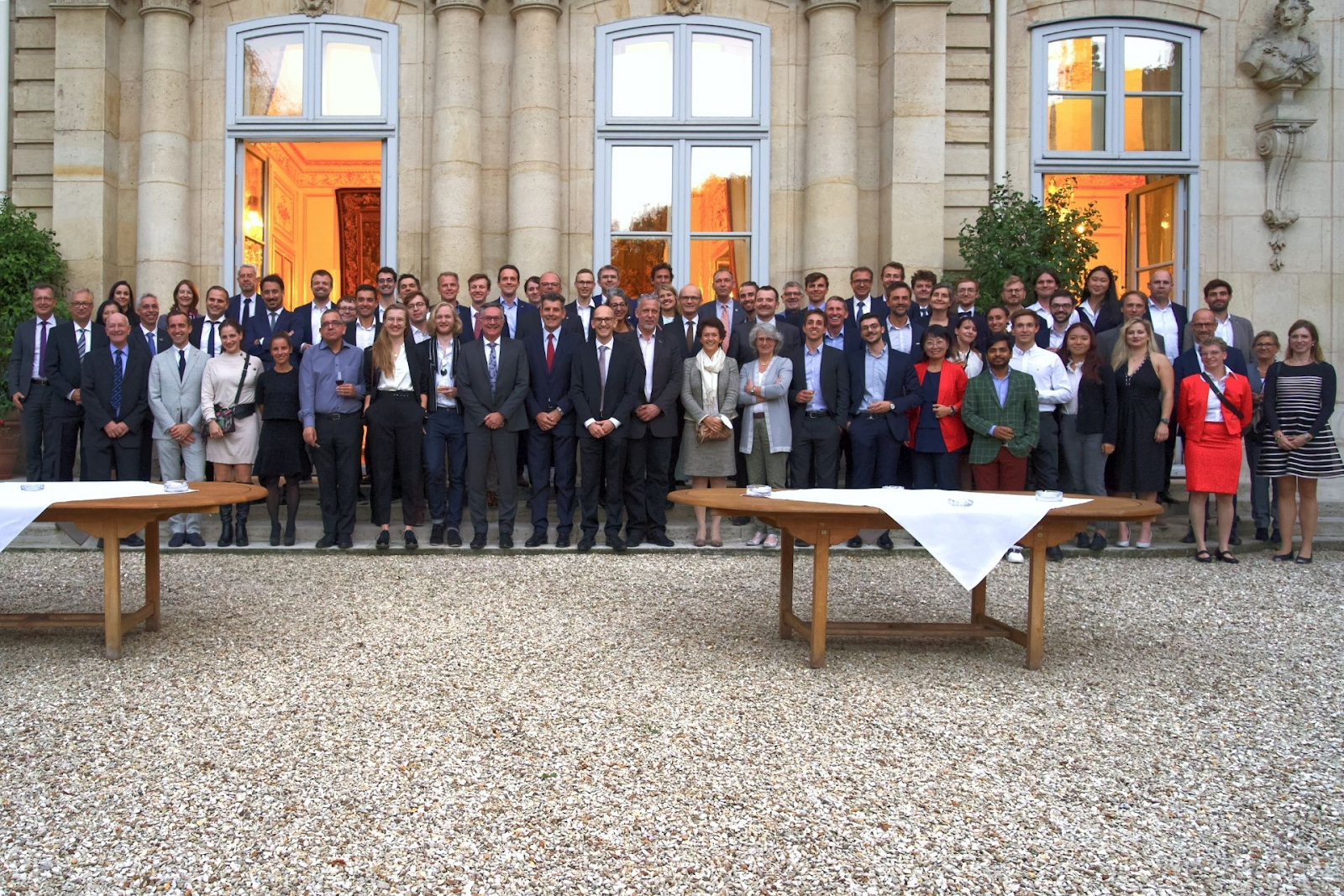From 18-22 September, a delegation from eSpace travelled to Paris to participate in the 73rd International Astronautical Congress (IAC) around this year’s motto “Space for @ll”.
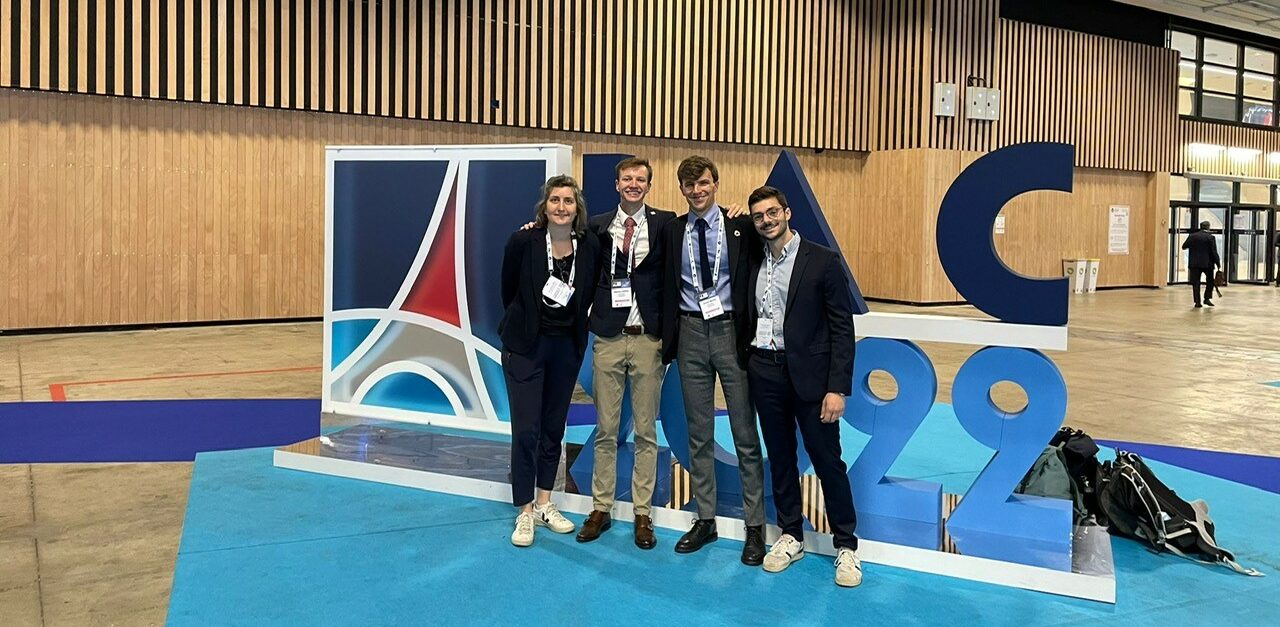
With more than 6,500 delegates and representatives from governments, non-governmental organisations, industry and academia, over 250 exhibitors, and conferences, lectures and interactive sessions over five days, the IAC is an annual landmark event for space that brings together the global space ecosystem.
The opening ceremony featuring the heads of space agencies from Europe, the US, Japan, India and Canada set the stage for the week’s discussions, which centred around the challenges raised by the increase of the number of space objects, positioning space sustainability as well as space traffic management at the top of the global agenda. These are issues that EPFL has been striving to address for over a decade with the start-up ClearSpace, the Research Initiative on Sustainable Space Logistics, as well as currently being the host of the Space Sustainability Rating (SSR), which received the 2022 Sustainable Development & Business Award at the World Satellite Business Week 2022, held by Euroconsult, the week before.
Building on this momentum, eSpace presented two papers on topics around the SSR. The first, “The Space Sustainability Rating: An operational process incentivizing operators to implement sustainable design and operation practices”, was presented by SSR Operation Officer Adrien Saada and took place during the 20th IAA symposium on Space Debris at the IAC. The presentation focused on explaining the SSR and demonstrated how it acts as an incentive for operators to implement sustainable design and operation practises. This technical paper highlighted how the measures taken by operators for a mission are translated into different scores, depending on if minimal efforts toward guidelines compliance is achieved, or if the currently best advised practices are followed, demonstrating that the highest tier of the rating can be achieved by following the best practices, regardless of the orbit type or number of satellites in a mission. The paper also showcased the role of the SSR team as a support for best practices implementation through recommendation issuing.
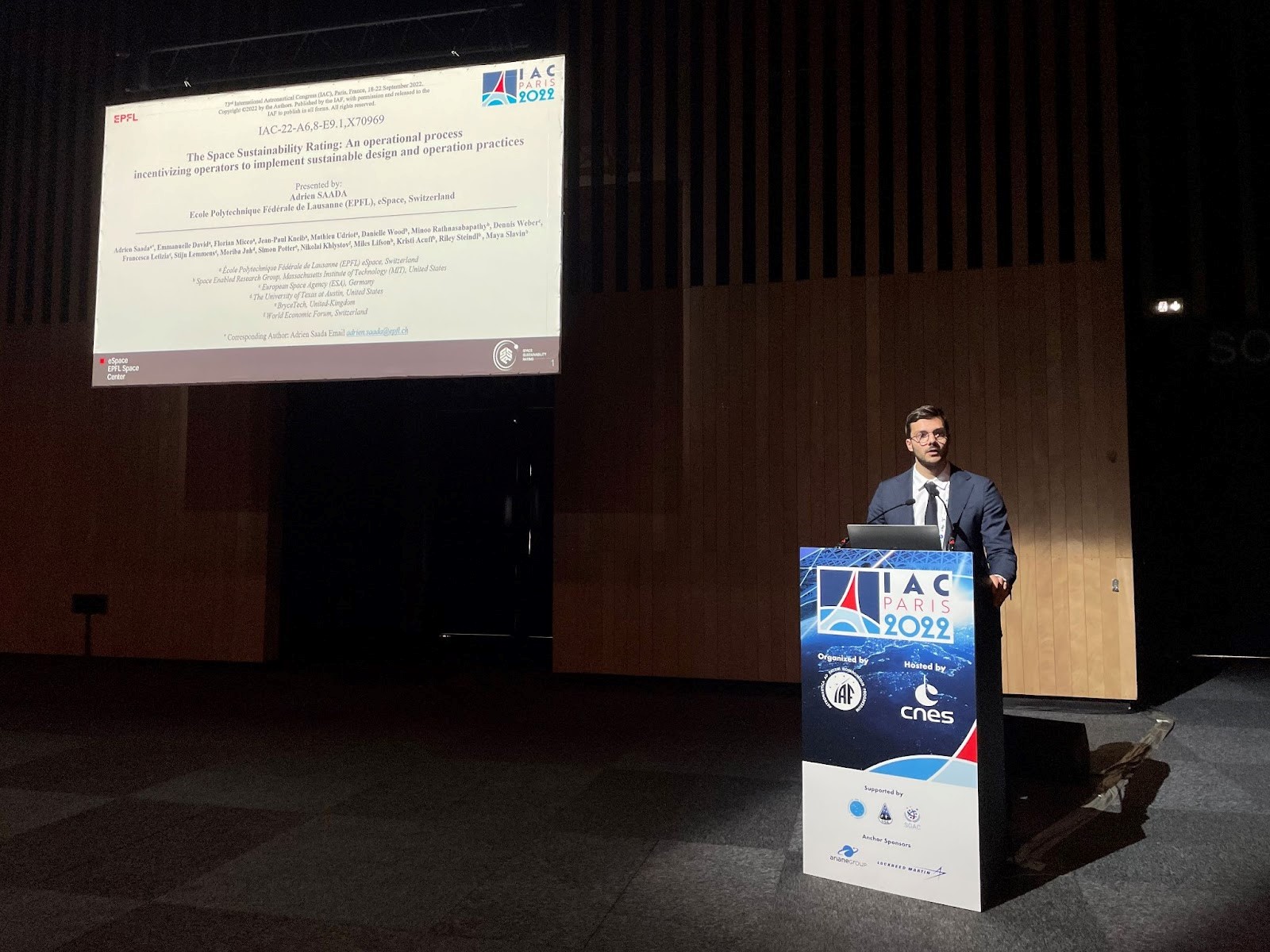
The second paper was presented by eSpace Engineer Mathieu Udriot at the “Space Transportation Solutions and Innovations Symposium”, which focused on the development of a launch vehicle sustainability rating (LVSR), a topic that Udriot also had the opportunity to present to several launch vehicle providers throughout the week with positive response. His paper presented the first iteration of the SSR design, with its modules and the test cases that were used to fine tune the first rating formula. By continuing the development of the LVSR, eSpace will provide a new metric to assess the sustainability of space actors. It will encourage them to design, share data, and behave in orbit in accordance with the limitations of the space environment. Along with these two papers on SSR, four other eSpace papers were presented at IAC, three where eSpace team members were lead authors, and another where eSpace was the co-author.
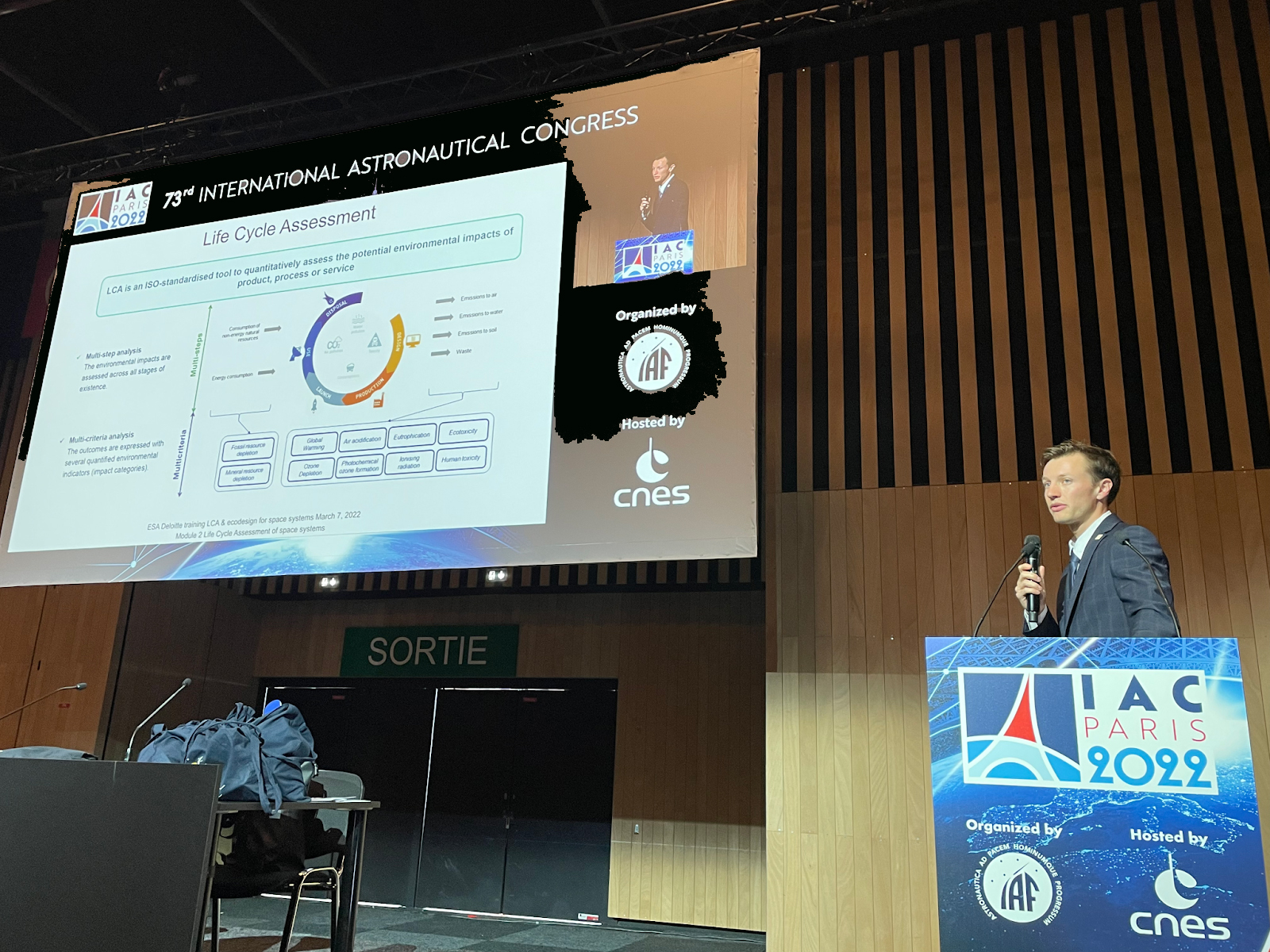
Florian Micco, SSR Project Manager, presented at Industry Day and participated in a special session on space sustainability. Micco along with eSpace Executive Director Emmanelle David also spoke in panel discussions focused on diversity and sustainability at the Swiss Pavilion for Diversity Day, which was organised by SXS- Space Exchange Switzerland. The IAC also gave eSpace an important opportunity to exchange with experts and industry from across the globe to further promote the SSR among this key audience and receive positive, feedback, constructive insights, and an unwavering motivation to continue moving the initiative forward.
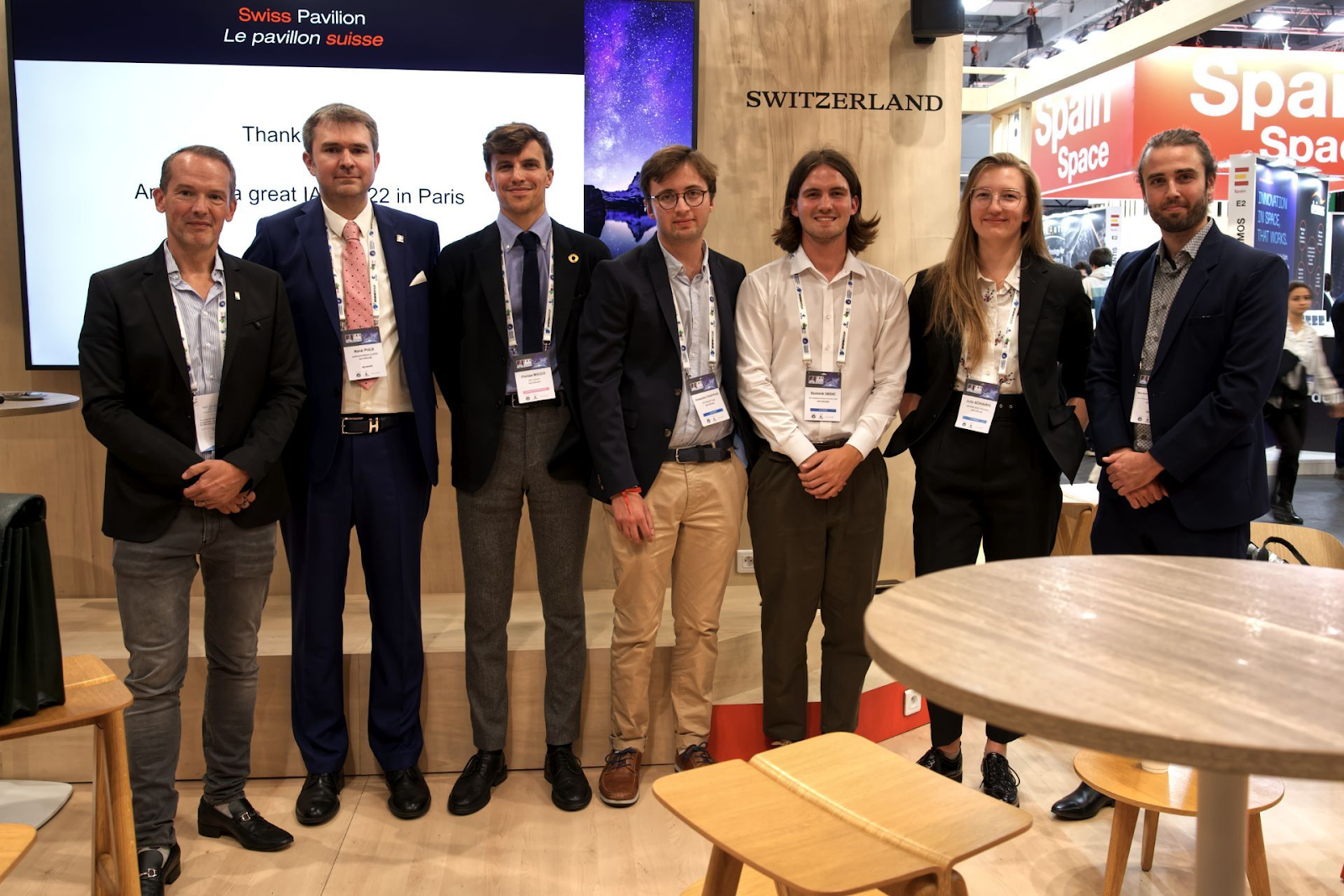
© 2022 EPFL/Swiss Space Exchange
Udriot also helped organise and present a special pub quiz session, which was conducted by the IAF Space Transportation Committee. The quiz was centred on the topic of “ensuring a sustainable access to space for all” and was built around four topics: regulations on environmental impacts from the space industry, atmospheric emissions from space activities, life cycle assessment (LCA), and ecodesign of space assets and transportation vehicles. For each topic, a set of quiz questions was asked to the audience that was grouped into teams of four. Results were then displayed and explained by the experts on stage to open future discussions and disseminate important facts and figures on the topics.
At the pub quiz, Micco had the opportunity to present the SSR as part of the topic of regulations, explaining how the SSR can change the space industry, and that while binding laws can change the current practices, voluntary certifications can incentivise better design and operational behaviour. Later in the session, Udriot introduced the concept of LCA, explaining the multi-step and multi-criteria approach to the large and diverse audience.
Along with focusing on what is currently happening in space, the IAC2022 and its theme of “Space for @ll” also made sure that the next generation of space actors had the chance to learn and share. As part of that educational mission, 16 EPFL students were able to attend the conference with the support of eSpace. The EPFL Rocket Team and Spacecraft Team presented their projects, and the Spacecraft Team was able to sign and announce a hosted payload agreement with D-Orbit for the testing and validation of the HOBC onboard computer developed at EPFL.
